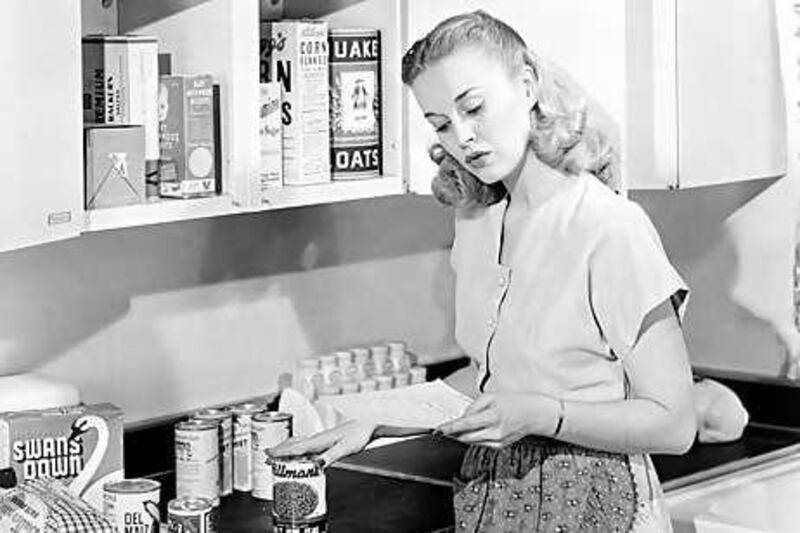Storing food is a particular problem in this country because of the heat and humidity. The ideal for storage is a cool, dark, dry, well-ventilated cupboard. It should be cool because food deteriorates at high temperatures (the ideal is about 10°C, but good luck finding that in the UAE - unless you keep the air conditioning permanently on). It should be dark because many foods, particularly spices and oils, deteriorate in the light.
It needs to be dry and well-ventilated because humidity can cause some foods, such as biscuits and cereals, to go soft; some, such as sugar, to cake; and others to grow mould. The key to hygienic, efficient kitchen storage is not to buy too much food at once. Buy just what you need and use it up before replacing it. This is not just a question of thrift: you want to discourage cockroaches and other pests.
Arrange everything in an orderly fashion, keeping like with like as much as possible - tins together, dry goods together, baking ingredients together and so on. Rotation is important, too: put newly bought packets or tins at the back of the cupboard so that older ones, stored in front, get used up (but see the note above, about not buying too much at once). Once opened, dry goods, such as rice, pulses and cereals, should be decanted into storage jars. I prefer glass ones because you can see what is inside at a glance, but if you choose opaque, make sure the lids are see-through because you will never remember what is in each one. Whatever you choose, make sure the lids are airtight - those with a screw top or a rubber seal are best.
Don't top up storage jars. Use up the contents entirely and wash the containers before refilling them. If you are not sure how long to keep something, tear off the use-by date from the packet and put it in the jar as a reminder. Put your spices and baking ingredients in plastic boxes with well-fitting lids. As with other dry goods, it's better to decant them - although you can leave them in their packets if wished.
To keep cupboards clean, wipe over the door fronts and handles with detergent and a damp cloth weekly. Dust, grease and crumbs encourage mould and attract pests. Once every three months empty the cupboards. Check that packages are not torn and that tins are not rusty or bulging (a bulging tin means that the contents are spoilt. Throw it away immediately). And throw away anything that's way past its sell-by date.
Wipe the shelves with a damp cloth to remove crumbs, then wash thoroughly, wringing out the cloth well before wiping the shelves: they should not get too wet. Dry with a clean cloth and leave the cupboard doors open so the inside of the cupboards get completely dry and well aired before you start putting everything back in. The Housewife's Handbook by Rachel Simhon (Bloomsbury) is available on www.amazon.com





